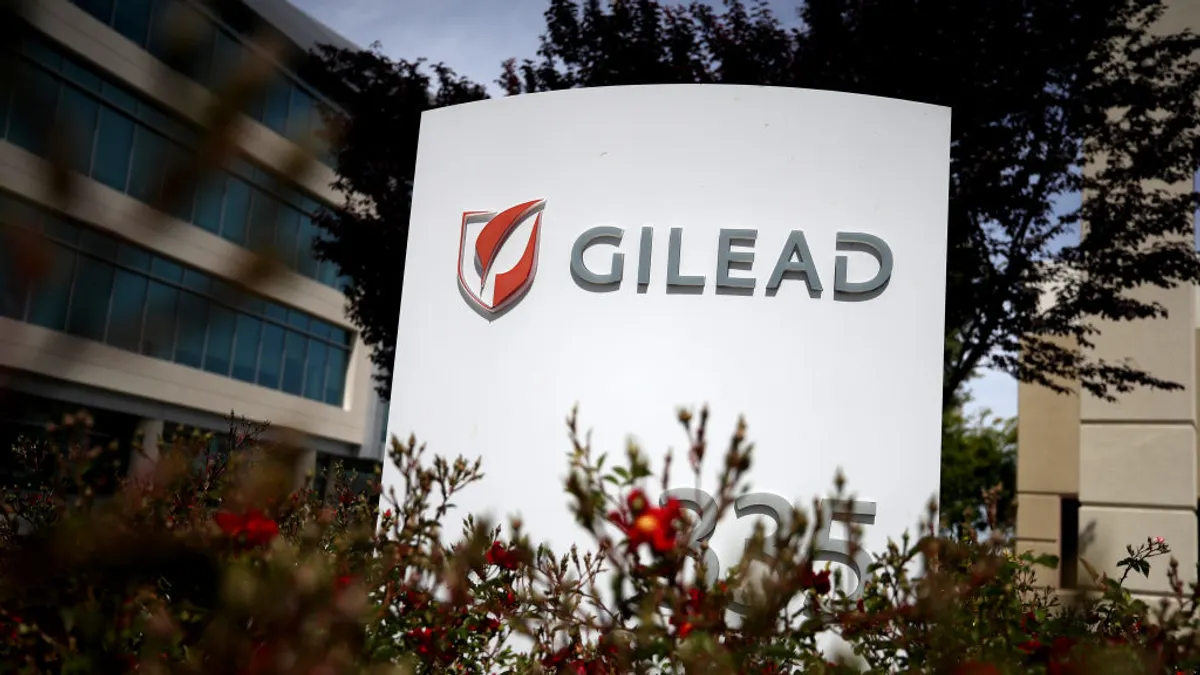Dive Brief:
- Gilead will no longer sell its combination drug Trodelvy to treat bladder cancer, announcing Friday it had agreed with the Food and Drug Administration to withdraw it following negative trial results.
- The FDA granted Trodelvy accelerated approval for bladder cancer in 2021, based on results that found it shrank tumors in people whose disease had progressed following treatment with chemotherapy and immunotherapies like Merck & Co.’s Keytruda. But a confirmatory study, titled TROPiCS-04, failed to show the medicine helped people live longer.
- Trodelvy’s withdrawal is one of several conditional approvals that have been rescinded in recent years, most notably among the “PD-1” class of drugs that includes Keytruda and Bristol Myers Squibb’s Opdivo. The Trodelvy decision, however, came months after negative trial results, a sign the FDA has become more vigilant about resolving so-called “dangling” accelerated approvals.
Dive Insight:
Trodelvy is a key part of Gilead’s foray into cancer treatment. An antibody drug conjugate, it’s designed to home in on a prevalent protein on tumor cells and then release a toxic chemical into those cells while sparing surrounding healthy tissue.
Gilead’s top seller in oncology is the cell therapy Yescarta. But that drug is primarily used to treat blood cancers like lymphoma, while Trodelvy is aimed at a variety of solid tumors. The setback in bladder cancer is a small disappointment, representing less than 10% of sales compared with 90% in breast cancer, TD Securities analyst Tyler Van Buren wrote in a note to clients.
Van Buren forecasts Trodelvy sales of around $1 billion by 2030 in breast cancer, its remaining approved setting.
Expansion into lung cancer has also hit a roadblock, when a study generated disappointing results in a patient group in which a similarly acting drug from AstraZeneca and Daiichi Sankyo has been more successful. AstraZeneca and Daiichi have already sought FDA approval for that drug, datopotamab deruxtecan, in lung cancer.
Gilead is expecting important Trodelvy data this year, from a Phase 3 trial focused on the first-line treatment of a hard-to-tackle type of breast cancer called “triple negative.” Combinations of Trodelvy and Keytruda have also advanced to late-stage testing against both breast and lung cancers.















